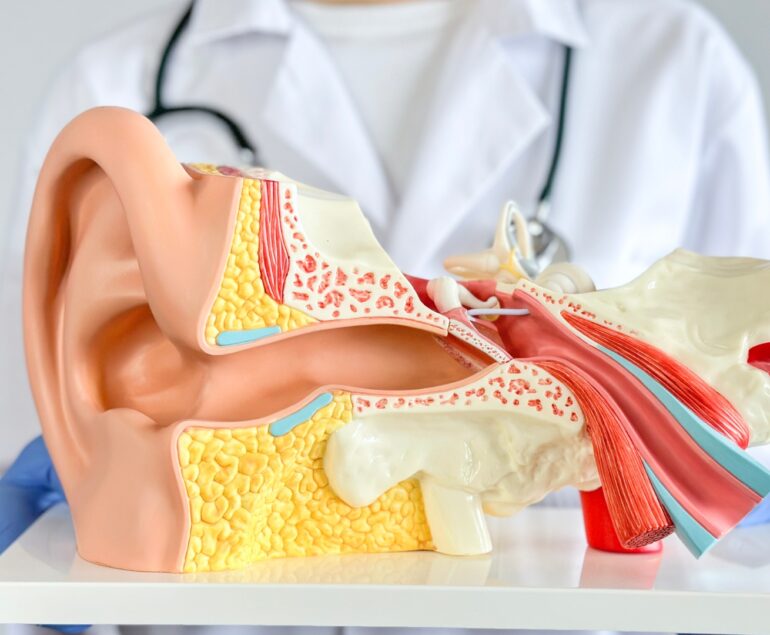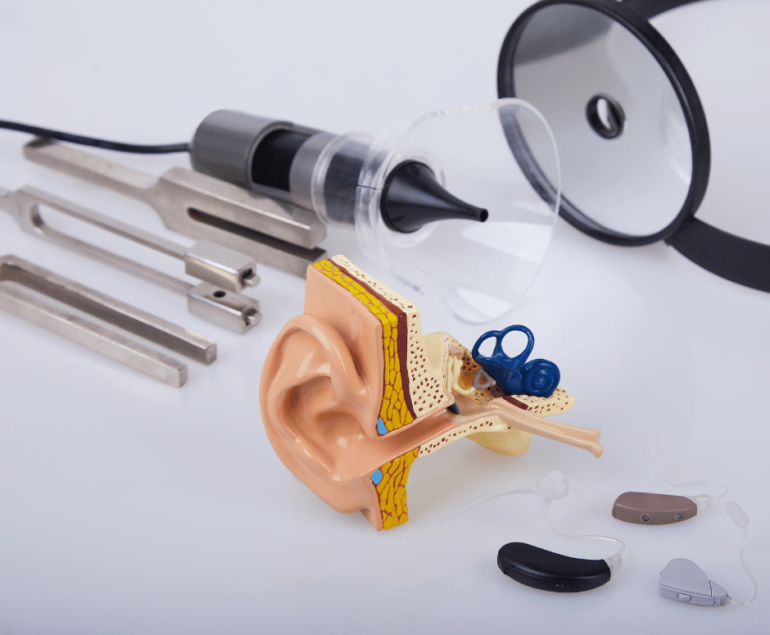Meniere’s disease is a problem with the inner ear that makes it hard to hear and keep your balance. It is named after Prosper Meniere, a French doctor who first wrote about the condition in 1861. Meniere’s disease can be debilitating because it can cause dizziness, hearing loss, ringing in the ears, and a feeling of fullness or pressure in the affected ear. In this blog post, we will talk about the signs of Meniere’s disease, how it is diagnosed, and the different ways it can be treated.
Symptoms of Meniere’s disease
The symptoms of Meniere’s disease can vary from person to person and may include:
- Vertigo is a feeling of spinning that can make it hard to keep your balance. People with Meniere’s disease often have episodes of dizziness that last for hours or even days.
- Tinnitus is a buzzing, ringing, or humming sound in the ears that doesn’t come from anything outside the body. Meniere’s disease can cause tinnitus that is bad enough to make it hard to do everyday things.
- Hearing loss: Meniere’s disease can cause short-term or long-term hearing loss. Hearing loss usually starts in one ear but can spread to both ears over time.
- People with Meniere’s disease may feel fullness or pressure in the ear that is affected by the disease.
Diagnosis of Meniere’s disease
Meniere’s disease can be hard to figure out because its symptoms can look like those of other diseases. Most of the time, a doctor will start by getting a detailed medical history and doing a physical exam. They may also ask for these tests:
- Hearing tests: An audiogram, which is another name for a hearing test, can show if there is hearing loss and if it is caused by Meniere’s disease.
- Balance tests: A balance test, also called a vestibular function test, can find out if your inner ear isn’t working right and causing your vertigo.
- Imaging tests: An MRI or CT scan can rule out other conditions that can cause symptoms like Meniere’s disease.
Treatment options for Meniere’s disease
There is no cure for Meniere’s disease right now. But there are a number of treatments that can help control symptoms and make life better. Some ways to treat Meniere’s disease are:
- Medication: Medication, like diuretics, can help reduce the buildup of fluid in the inner ear and ease the symptoms of Meniere’s disease.
- Changes in lifestyle: Changing things like how much salt you eat and how you deal with stress can help reduce the number and severity of Meniere’s disease symptoms.
- Therapy: Vestibular rehabilitation therapy can help people with vertigo get their balance back and feel less dizzy.
- Surgery: If the symptoms are very bad, surgery may be needed to help. Endolymphatic sac decompression is the most common surgery for Meniere’s disease. It involves taking out a small piece of bone to relieve pressure in the inner ear.
Meniere’s disease is a long-term illness that can have a big effect on a person’s quality of life. Even though there is no cure for Meniere’s disease, there are several ways to manage the symptoms and improve your overall health. If you think you might have Meniere’s disease, talk to your doctor about your symptoms and the different ways you can be treated.
About Author:
Dr. Vivek Kumar Pathak: Renowned ENT Surgeon, Senior Professor, and Founder.
Dr. Pathak, ENT surgeon at Kailash Hospital, Senior ENT Professor at Sharda University, and founder of Entegrity Care, brings expertise and innovation to healthcare. Discover the visionary behind Doxtreat Healthcare, shaping the future of ENT care.
Website www.drvivekpathak.com
Call +917838450942
WhatsApp +91 78384 50942
Book an appointment with Dr. Vivek kumar Pathak by filling the form.




